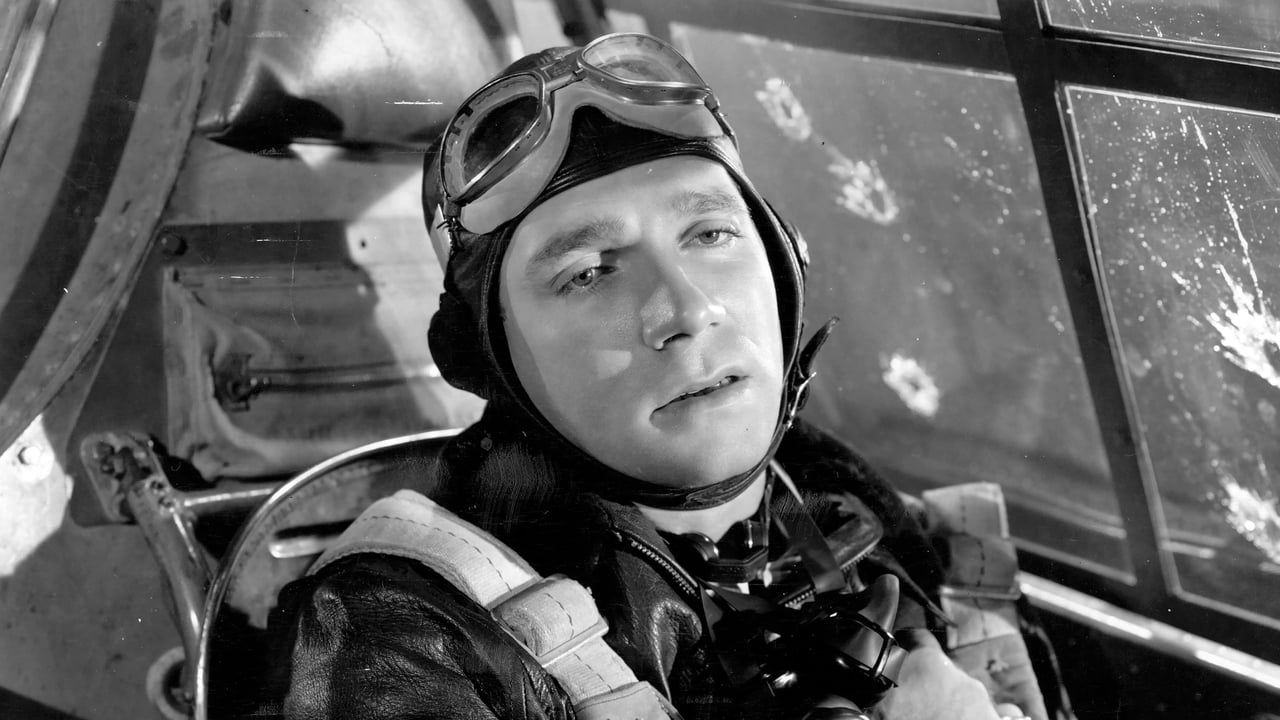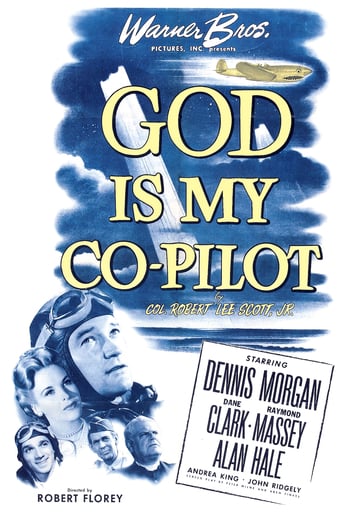CommentsXp
Best movie ever!
Curapedi
I cannot think of one single thing that I would change about this film. The acting is incomparable, the directing deft, and the writing poignantly brilliant.
Grimossfer
Clever and entertaining enough to recommend even to members of the 1%
Roman Sampson
One of the most extraordinary films you will see this year. Take that as you want.
lord woodburry
The Flying Tigers roared onto the screen and into the imagination in two fairly good films: The Flying Tigers with John Wayne and God is My Co-Pilot, based upon the real life experiences of Colonel Scott. WWII was nothing like the politically correct war of current vintage. The American people did not love their enemy; they would have used the enemy's sacred writings for wholly sanitary purposes and bragged of the experience. The movie correctly shows this. On the other hand, in the spirit of Greater American Democracy, plenty of Neisi and Chinese actors had jobs as extras smiling at bombs away in the halycon years of the WW II propaganda movie.The book is still worth reading even today. More than a mere autobiography or piece of US war propaganda, Scott tells of the conflict between Chennault and Stillwell, the destruction of the Flying Tigers, the eclipse of the Chinese Nationalists and the rise of Mao.The movie has one glaring historical error in the movie: The July 4 1942 raid did not take place. The original AVG refused to fly.
bkoganbing
I've now had to edit this review with the news of the death of Colonel Robert L. Scott, Jr. at the grand old age of 98. He was a genuine war hero and the leading citizen of his home town of Macon, Georgia.The book on which this film was based was written in the flush of VJ Day after our Pacific victory. Moods and attitudes don't change so easily and when Warner Brothers made this film we were in our World War II mode. I do wonder if Scott had waited a few years before selling the film rights would the picture have included all the racial cracks about the Japanese? Probably so because those were our attitudes and Japan was the enemy.But I doubt the enemy would have been so personalized as Richard Loo's character with the buck teeth and the Charlie Chan dialog. Even 12 years later in The Bridge Over the River Kwai, the Japanese are cruel and despotic without being stereotyped. I doubt if Sessue Hayakawa would have played it the way Richard Loo did, who in fact was Chinese and his country was fighting the Japanese. Because of the racial stuff, God Is My Co-Pilot is not as well regarded today as it could have been. That's a pity because Dennis Morgan does a grand job in portraying a genuine American hero. It and Chauncey Olcott in My Wild Irish Rose are probably the roles Morgan is best known for today. Also Raymond Massey as General Claire Chennault and Alan Hale as a Catholic missionary priest are memorable.Of course if the film had come out years later, Jimmy Stewart would have insisted on playing Scott. But he was still busy in the real Army Air Corps at the time.
Ron-181
The story is loosely based on Robert L. Scott's autobiography. The picture made towards the end of World War II is a fairly typical war time film. The story does give some accurate details on the Flying Tigers and there total dominance over the numerically superior Japanese forces. Colonel Scott was a legitimate ace during the war and his story is worth watching. I rated this a 7.
Robert J. Maxwell
I saw this movie on TV as a kid and enjoyed it thoroughly -- Flying Tigers!I saw it again on TV tonight for the second time, and found it to be a howler from beginning to end. It's easy enough to find effective, cheaply made flag-waving propaganda movies made during the war years that have redeeming qualities, properties that make them worth watching. They may be no more than suspenseful actioners, like "Destination Tokyo," or may have more thoughtful narratives embedded in the framework, like Hawks' "Air Force" or "Thirty Seconds Over Tokyo." "God is My Co-Pilot" hasn't got much of anything except a few minutes of good aerial photography. In the air, as usual, a kind of war-time trainer called the "Texan" substitutes for the Japanese Zero-sen, as it did in "Tora! Tora! Tora!" The P-40s are attractive airplanes, with clean lines, although they appear to be Model Es rather than the Cs the AVG used. A small matter. In any case, you can only admire the airplanes for so long before the story line and dialog begin to intrude into your consciousness. Scott's book was a simple, straightforward autobiography. The movie is piled high with extraneous material based on two themes: (1) a vicious and unrelenting racism that must have been offensive to some Americans over the age of ten even in 1945, and (2) something to do with whether Scott believes in God or not -- or was it the other way around? The dialog stretches desperately to reach upward to the level of banality but doesn't quite make it. I think I should give a few examples and leave it at that. Japanese pilot {played by Hawaiian-born Chinese-American Richard Loo} called "Tokyo Joe" radioing to a P-40 he has lined up in his sights: "Just hold it right there, Yank." P-40 pilot radioing back: "Don't call me Yank; I'm from Georgia." American pilot radioing to a Japanese pilot he's shooting down: "Don't look now, but your Zero's showing." American pilot to another Japanese going down in flames: "Now you're a good Jap." General Chennault watching from the ground with a big smile as his pilots slaughter the Japanese: "The boys must be in a good mood today." The real life epilogue? Chennault was a pretty clever guy, forsooth, trained his AVG mercenaries very effectively, and warned everyone back in the Western Hemisphere that the Japanese Zero was a remarkably maneuverable fighter, better than anything we had. (His warning was ignored; the Zero came as a big surprise after Pearl Harbor.) There was no room in the U. S. Army Air Force for a hero like Chennault, who had carved out a reputation in some other air force, namely the Chinese, and he was promptly "disappeared." The original AVG pilots were given the choice of becoming just another couple of guys in the Army Air Force or being kicked out and sent back to the states to be drafted as privates. AVG disbanded. End of Flying Tigers, except in our national mythology.

